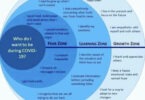The Center for Disease Control (CDC) has conducted a 24 hour food recall survey (“National Health and Nutrition Examination Survey“, http://ajcn.nutrition.org/content/early/2013/02/18/ajcn.112.052662.abstract?sid=2e46c683-1623-4c0e-b2b6-41a509f0b8a2) with about 5,000 random volunteers ages 20-74 every 2-4 years for the last 40 years. The latest findings, interesting to say the least. It seems individuals are eating fewer calories. From 2003-2004 average energy intake was 2269 calories/day. Fast forward to 2009–2010, food intake was reported to lessen by 75 calories (2195 daily calories). For the past 6-7 years fewer calories has not translated into downward trends in weight loss.
According to William Dietz who was interviewed by Reuters Health, “Seventy-four calories is a lot and we would expect to see a measurable impact on obesity”, http://www.nlm.nih.gov/medlineplus/news/fullstory_134667.html. He goes on to explain that “he would have expected obesity rates to have leveled-off for both sexes and to be decreasing at this point, if people are consuming fewer calories”. Despite the general calorie reduction, obesity rates for women have not declined and the results for men actually reflect weight gain as obesity rates rose from 25-35%.
Although the downward calorie trend is not significant, my hope is that the positive move will snowball. Just as it seems to be going in the right direction for our kids, http://www.nytimes.com/2013/02/21/us/children-in-us-are-eating-fewer-calories-study-finds.html?_r=0.
In fact, boys (especially ages 2-11) lowered total calorie intake by 7% and girls by 4% (predominantly teenagers). The good news is that the reduction in calories came from carbohydrates and sugar. Protein, an important nutrient for growth was maintained. Hopefully this means that moms and young adults are getting the message that eating excess carbohydrates and sugar is not healthy and can lead to weight loss.
More good news is that adults 40-59 seem to be eating a little less fast food by 1.5%, maybe this means it will result in even more positive eating habits for children. Yet, African Americans ages 20-39 are still choosing more fast food than ideal especially because obese individuals consume more fast food, in general.
With Americans consuming 75 less calories each day, the weekly total is about a 524 calorie deficit which means if all else is constant, it would take 61/2 months to lose a pound. Hardly enough to motivate anyone to continue to make weight loss a priority or make a dent in the obesity epidemic.
Powerful results are more likely to happen if the excess junk food or fast food, sugar and carbs are cut by 50%. Healthy lifestyle practices like more activity and abandonement of the use of food to cope with emotional and other struggles is important. As is the development for healthy eating habits of real, not commercially made, foods. Instead of following general guidelines, individuals should increase their awareness of foods that effect appetite and energy levels.
Weight gain and obesity is a real problem. The results of this survey gives us a glimmer of hope that people are eating less calories. But we need better results, 75 calories a day is not enough. Reducing calories by at least 500 calories a day or carbohydrates to 25-50 grams and getting more active will help get better results. I would like an answer from the experts, “What has to happen to improve these results?”. I have my own opinion, but what good is the survey if there are no changes in strategies that accompany these types of results.
You may also like
About the author
Valerie Goldstein
Valerie raises the bar for health and nutrition know how with unconventional expertise and unconditional support for wellness.








Val great post. Thanks so much for it. I am trying the intermittent fasting thing on Mercola’s site–2 days a week I don’t eat breakfast on weekends. I probably couldn’t do it much more than that too busy. I was just at the doctor and didn’t gain weight lost 1-2 more pounds actually. I know I can lose more haven’t been faithful (candy on holidays–well around the holidays). I pretty much stopped wheat but eat other carbs still like potatoes. I think the sugar still remains the biggest problem. Andrew’s cholesterol is high too (but not Sam’s–however Andrew has chocolate milk every day at lunch–mistake–and eats more sandwiches) but my focus remains on diet and exercise with him. Hope everyone is well there. I asked them to buy your book at Syosset Library but they don’t pay attention and interlibrary loaned it instead. I’ll ask again.Date: Mon, 22 Apr 2013 16:52:40 +0000 To: suzanne_heller@hotmail.com